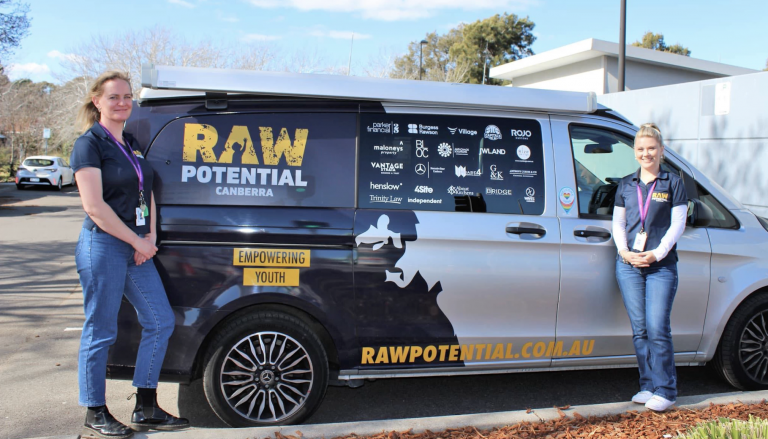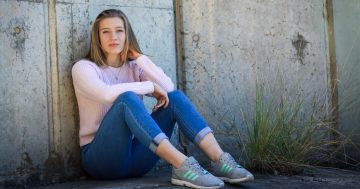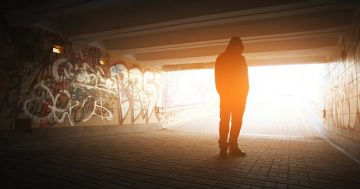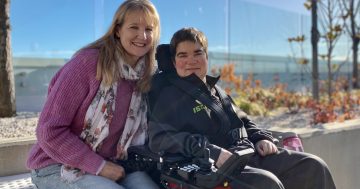
Raw Potential’s two outreach workers go to homeless or at-risk young Canberrans where they are. Photo: Raw Potential Canberra.
Dozens more young Canberrans aged between 12 and 25 who are homeless, at risk or disengaged are set to be supported after a local non-profit group received a $60,000 funding boost.
Raw Potential Canberra will expand its outreach services, increase the number of counselling sessions and offer more education and training opportunities with the grant from The Chappell Foundation.
The charity’s chair John Miller says it costs Raw Potential about $250,000 to $300,000 a year to keep its two outreach workers and vehicle on Canberra’s streets to come to the aid of 20 to 30 young people the organisation is helping at any given time.
“A lot of them don’t really engage with mainstream service providers or they won’t or can’t, so being able to get out and meet them where they are is important to them,” Mr Miller says.
“We’re doing it on their terms in a place that’s comfortable for them and they’re probably a little bit more predisposed to actually coming out and speaking to our outreach workers.”
But Mr Miller says there’s still much work to be done towards educating the community about what youth homelessness means and how prevalent it is in the Canberra region.
“You look around Canberra and … all the signs are of an affluent and well-cared-for, well-catered-for community,” he says. “Behind all of that, and I think you’ll find this in a lot of places, there is an underbelly.”
A data analysis prepared by Housing ACT found the number of homeless people aged between 12 and 24 in the ACT increased by almost 15 per cent between the most recent Census years of 2016 and 2021.
Aside from young people sleeping rough (1 per cent in the ACT), the Australian Bureau of Statistics also considers young people living in homeless-supported accommodation (51 per cent in the ACT), severely crowded dwellings (23 per cent in the ACT), temporarily in other households (16 per cent in the ACT), boarding houses (10 per cent in the ACT) and temporary lodgings (0 per cent in the ACT) as homeless.
There were 399 homeless youth in the ACT in 2021 at a rate of 52.3 per 10,000 people, which remains the second-lowest rate nationally.
“[The rate] can be one. It’s always too high,” Mr Miller says.
“People might say, ‘Well, they got themselves in that situation.’ That doesn’t matter. What matters is that we try and help them get through all of their own trials and tribulations.”
Formerly named Open Family (ACT) and later YouthCARE Canberra, Raw Potential took its current name in 2019 to better reflect the ethos of self-empowerment.
But Mr Miller says the top priority is to put young people in safe, comfortable housing before working with them to improve other aspects of their lives.
“We’ve had plenty of people who have found employment, who have turned their lives around, so to speak, and that’s a generalisation. But that does happen,” he says.
“We’ve had some people come back and do some fundraising with us who have been through that process and it’s just lovely to see. Some of these kids had some pretty harrowing stories.”

















